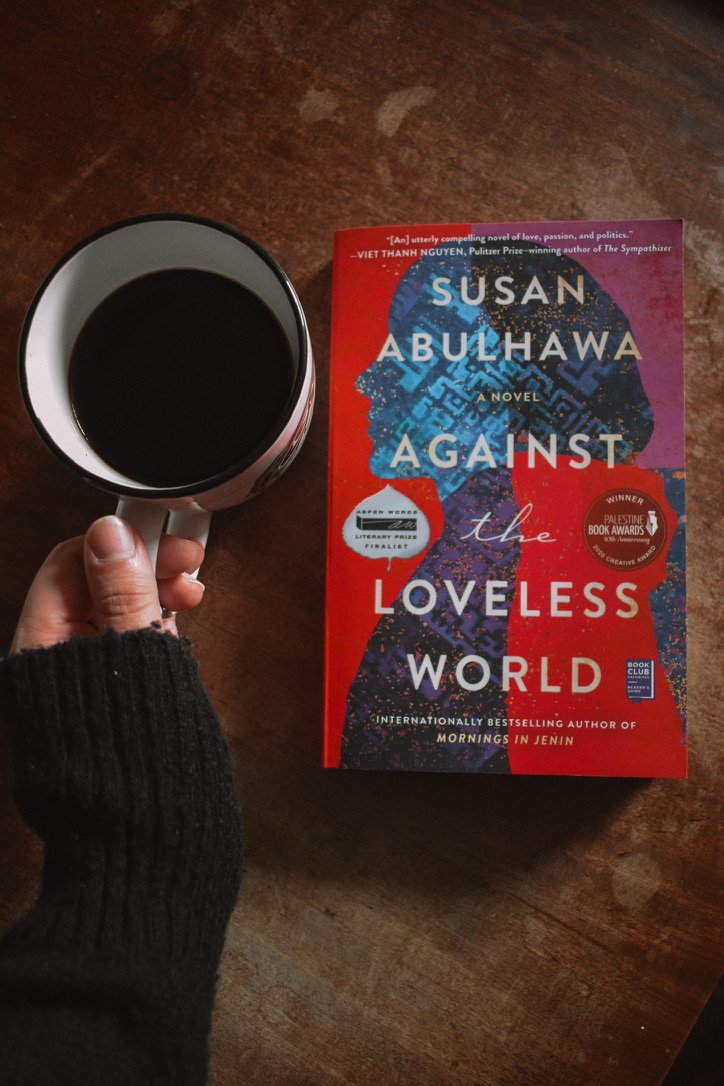Against The Loveless World by Susan Abulhawa
“I colonized the colonizer’s space of authority. I made myself free in chains and held that courtroom captive to my freedom.”
This book is heartbreakingly gorgeous. It is rooted in the occupation of Palestine as a core theme, while exploring ideas of resistance, of strength, of law enforcement, of family, of land, of love, and of freedom.
Reading Susan Abulhawa’s Against the Loveless World has made it so uncomfortable to watch the news recently, to see the contradictions and inconsistency in what we praise as resistance and what we diminish as terrorism. What we see as strength and what we see as danger.
The protagonist is forced to flee as a refugee more than once, as was her family before her. She is cornered into making impossible decisions, and then judged for making them. She is a revolutionary in a world that did not give her much choice. But the novel also enforces that fact: we always have a choice.
I learnt a lot through this novel about Palestinian occupation. I learnt a lot about connections between Western intervention and war. That’s one direction you could dive into.
I learnt alot about land, about home, about family. That’s another direction you could dive into. The targeting of olive trees and Indigenous ways of being with the land is not a new tactic, and not one that has ended today. The ‘conflict’ is settler colonial occupation. Name it.
This novel is complex and political at the same time as being a simple story about love for the world.
Reading Journal Questions
How familiar are you with the Nakba? Did you know about this event before reading this novel?
How did this novel challenge your understandings of colonial occupation?
If you were put in the same conditions as Nahr, do you think you would make the same choices?
Is violence always a question of good and bad? Is it so simple?
What did you learn from this novel about the culture and history of Palestine?

